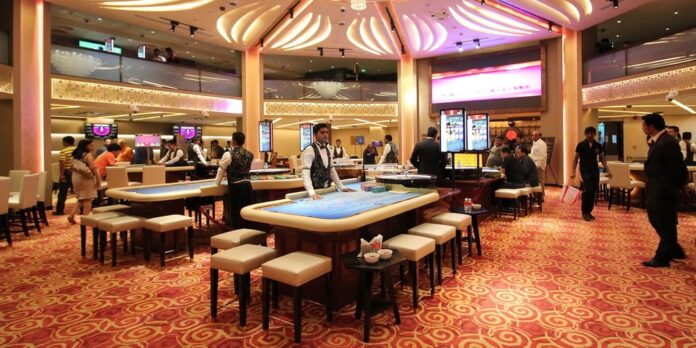As Goa’s casino industry continues to expand, the state government is facing mounting pressure to address concerns surrounding the proliferation of casino licenses. With debates heating up over the potential impact on the local economy, environment, and social fabric, the question of how many licenses should be granted is becoming increasingly contentious. Here’s a closer look at the current situation, the pressures faced by the Goa government, and what this means for the future of the casino industry in the region.
The Expansion of Goa’s Casino Industry
Goa has long been known as a hub for casino tourism in India, attracting visitors with its vibrant gaming scene and luxury resorts. The industry has seen substantial growth over the years, with both onshore and offshore casinos operating across the state. Key points regarding this expansion include:
- Growing Number of Casinos:
- Increased Licenses: The number of casino licenses issued in Goa has risen significantly, leading to a saturated market. This growth has brought both economic benefits and challenges.
- Diverse Offerings: Casinos in Goa offer a wide range of gaming options, from slot machines and table games to live dealer experiences, catering to diverse visitor preferences.
- Economic Contributions:
- Tourism Boost: The casino industry has been a significant driver of tourism, contributing to the local economy through job creation, infrastructure development, and increased visitor spending.
- Revenue Generation: Casino operations generate substantial revenue for the state government through licensing fees, taxes, and other financial contributions.
The Pressures to Limit Casino Licenses
As the casino industry grows, various pressures have emerged, prompting calls for the Goa government to reconsider its approach to licensing:
- Economic Concerns:
- Market Saturation: There is concern that the market may become oversaturated, leading to increased competition and potentially diminishing returns for existing operators.
- Impact on Local Businesses: Some local businesses argue that the concentration of casinos may divert tourism away from other attractions and affect their revenue.
- Environmental Impact:
- Sustainability Issues: The expansion of casino operations has raised environmental concerns, including the impact on local ecosystems, water resources, and waste management.
- Infrastructure Strain: Increased casino activity can strain local infrastructure, including transportation, sanitation, and utilities.
- Social and Community Concerns:
- Problem Gambling: The proliferation of casinos may contribute to a rise in problem gambling and related social issues, including addiction and financial difficulties.
- Community Impact: There are worries about the broader impact on local communities, including changes in social dynamics and potential disruptions to traditional lifestyles.
- Regulatory and Legal Issues:
- Compliance and Oversight: Ensuring that all casinos adhere to legal and regulatory standards is a challenge, particularly with a growing number of operators.
- Enforcement Challenges: Increased numbers of casinos can complicate enforcement efforts related to responsible gambling, financial regulations, and operational standards.
Government Response and Measures
In response to the pressures and concerns, the Goa government is considering various measures to address the situation:
- Review of Licensing Policies:
- Assessment of Market Needs: The government is assessing the current market dynamics to determine if there is a need to limit the number of new licenses or impose stricter criteria for granting them.
- Regulatory Reforms: Potential reforms include revising licensing procedures, implementing stricter guidelines for new applicants, and enhancing regulatory oversight.
- Environmental and Social Initiatives:
- Sustainability Measures: The government is exploring ways to address environmental concerns through sustainability initiatives and improved infrastructure planning.
- Support Services: Measures to support responsible gambling, including counseling services and public awareness campaigns, are being considered to mitigate social impacts.
- Stakeholder Engagement:
- Consultations and Dialogues: The government is engaging with various stakeholders, including casino operators, local businesses, community groups, and environmental organizations, to gather input and address concerns.
- Public Feedback: Public consultations and feedback mechanisms are being used to gauge community opinions and incorporate them into decision-making processes.
- Strengthening Enforcement:
- Improved Oversight: Enhancing enforcement mechanisms to ensure compliance with regulations and address any issues related to illegal or unlicensed operations is a priority.
- Monitoring and Evaluation: Ongoing monitoring and evaluation of the casino industry’s impact will help the government make informed decisions and adjust policies as needed.
Looking Ahead
The Goa government’s decision on whether to limit the number of casino licenses will have significant implications for the state’s gaming industry and broader community. Key considerations include:
- Balancing Economic and Social Goals:
- Sustainable Growth: Finding a balance between promoting economic growth through tourism and ensuring social and environmental sustainability will be crucial for the government’s approach.
- Long-Term Impact: The long-term impact of casino expansion on local communities, infrastructure, and the environment must be carefully considered in the decision-making process.
- Ensuring Effective Regulation:
- Regulatory Framework: Developing a robust regulatory framework that addresses the needs and concerns of all stakeholders will be essential for managing the casino industry effectively.
- Compliance and Enforcement: Ensuring that all operators adhere to legal and ethical standards will help maintain the integrity of the industry and protect the interests of the community.
- Community Engagement and Support:
- Inclusive Decision-Making: Engaging with the community and incorporating their feedback into policy decisions will help build support and address any concerns related to casino operations.
- Public Awareness: Raising awareness about the benefits and challenges of the casino industry will contribute to informed and balanced discussions.
Conclusion
The Goa government faces a complex challenge in balancing the growth of the casino industry with concerns about market saturation, environmental impact, and social issues. As pressure mounts to limit the number of casino licenses, the government’s approach will need to address these multifaceted concerns while promoting sustainable development and maintaining public trust. The coming months will be critical in shaping the future of Goa’s casino industry and ensuring that it contributes positively to the state’s economy and community.


